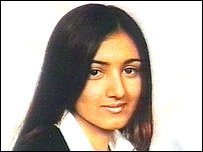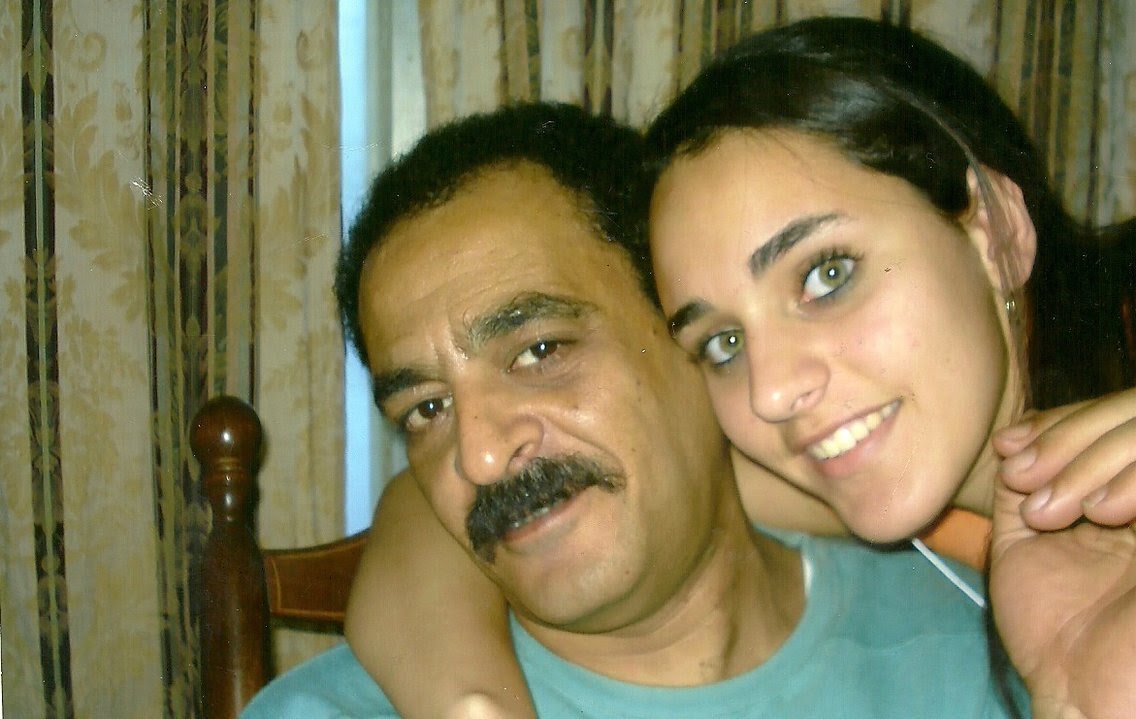Honour Killings – What Are They & Why Do They Happen?
For most people, the whole concept of honour killings is impossible to comprehend. How could anybody be monstrous enough to murder their own daughter in cold blood, often with the help of other relatives?
It’s a phenomenon that we just can’t understand. We can just about grasp the concept of a ‘crime of passion,’ whereby someone beats their partner to death in a fit of rage, but the calculated nature of so-called ‘honour killings’, which are often planned in great detail in the weeks leading up to the attack, are incomprehensible to us.
My job as a blogger is to provide information and raise awareness of important issues, and in order to do this, I will first examine exactly what is an honour killing, the contextual factors that may lead to someone becoming the victim of an honour killing, the societal environments in which the culture of ‘honour’ thrives, and why on earth anybody would murder their daughter, or sister, or niece, for a crime as small as owning a cell phone or smiling at a stranger.
In exploring the above, I hope to provide people with a basic understanding of the victims, perpetrators, and environments that these crimes take place in.
I hope that this article will provide that.

Honour Killings – What Are They & Why Do They Happen?
The culture of ‘honour’
To the western reader, words such as ‘family’ and ‘honour’ have fundamentally different meanings than they do in Islamic world.
The family structure in the tribal system in Arabia centuries ago is a clan whose numbers increase rapidly through practices such as polygamy and child marriage. In such large extended families, the individual is subordinate to the collective as a whole, and certain individuals are more valuable than others. For example, young men who can go into battle to defend their families are more highly valued than young girls and old women. However, young girls are more highly valued than older women as they are necessary to produce sons and can also be traded.
The most important value instilled into young children is the importance of maintaining the family bloodline at any cost, whether that means giving up their property, or even their lives. Again, the collective is more important than the individual.
This system predates Islam, and in the years before Islam was founded, families of Arabia collaborated through complex commercial and marital alliances. Marriage, then, was not for love, but financial gain or increased social status. It is this belief that the collective is more important than the individual, combined with the need to marry someone from the ‘right’ family, that still leads to the deaths of so many young girls.
A girl who falls in love with a boy from a rival clan might fall pregnant with him, thus corrupting the precious bloodline. In order to preserve the bloodline, she must be destroyed.
This line of thinking is in-keeping with attitudes found in the present day. Abd al-Baqi Qammu, a lawmaker in Jordan, explains that ‘Adulterous women are much worse than adulterous men, because women determine the lineage.’ This attitude may be difficult for the western mind to comprehend, but every child raised in this world learns their social skills in this culture of shame, honour and disgrace. Children learn to obey their elders at any cost, and that anybody who disrespects or humiliates the bloodline must be punished. Boys are taught to be aggressive from an early age because aggressive behaviour serves the purpose of curtailing undesirable behaviour and thus avoiding public humiliation from others.
(Sidenote: In her book, Heretic: Why Islam Needs a Reformation Now, Ayaan Hirsi Ali explains the culture of honour extremely eloquently. I can’t recommend this book enough if you want to gain a deeper understanding of this subject.)

Honour killings and Islam
Oh boy. I debated long and hard about whether to include this section. It is becoming the norm in our culture to gloss over (or avoid entirely) that which may cause discomfort or offence, and I strongly believe that this is not only bad journalism, but extremely dangerous. Not only that, but I fear that the priority for most readers these days is not to seek the truth, but to find offence. However, as somebody that truly cares about human rights, it is my duty to present you with the truth, however uncomfortable that may be.
It is true that honour-based violence predates Islam and that honour killings are not sanctioned within the Koran.
With that said, the victims of honour killings are almost exclusively Muslim, the countries with the most honour killings are Islamic countries, and the perpetrators of honour based violence often believe that their crimes are justified within Islam.
This is partly because certain elements of Sharia law can be interpreted in ways that seem to condone honour killings, and although Muslim scholars agree that these interpretations are not correct, that doesn’t stop certain Imams and clerics showing a tacit acceptance of (and sometimes even advocating for) honour-based violence within their communities.
This misinterpretation of the Sharia and the insistence of Muslim clerics and Imams that honour killings are permissible within Islam causes honour-based violence to thrive in those village communities where conservative values prevail and access to education is limited.
Does this mean that we can blame Islam for honour killings? No.
The vast majority of the world’s Muslims are in agreement that honour killings are not part of their religion. However, do those that practise honour killings believe that their actions are justified between the pages of the Koran? The answer is yes.

Who are the victims of honour killings?
Honour-based violence and honour killings take place in many countries around the world, including Bangladesh, Turkey, Pakistan, Afghanistan, Jordan and Egypt. In 2002, the UN reported that honour killings have been found in countries such as France, Germany and the United Kingdom within migrant communities. In these cases, the murders are usually first generation immigrants against second and third generation immigrants to prevent them from becoming too westernised (I explain this in more detail below).
Although men are occasionally victims of honour killings, the vast majority of victims are young women. As outlined above, it is more dangerous for a woman to be promiscuous than a man, as it is the woman who impacts the bloodline.
‘Promiscuity,’ however, has a different definition within these communities to communities in the western world. For a girl to be considered ‘promiscuous’ in some communities, she only needs to smile at a stranger or own lipstick. In the minds of the perpetrators, something as small as glancing at a strange man must be punished because of the things that such a glance could lead to. This sounds extreme, but girls have been murdered for less.
Another reason that girls may fall prey to honour-based violence is if they are seen to be becoming ‘too western.’ For second generation immigrants who have grown up in the UK or the US, but whose parents are Pakistani (for example), they have to find their place in western society without bringing shame upon their families by ‘abandoning’ their culture.
In cultures where honour-based violence takes place there is a pathological insecurity, and the fear of losing face and being ostracised by their communities plays a crucial role in the so-called ‘defending of honour’ that takes place if a girl is seen to have brought shame on the family.
The men in this world cannot bear the thought of people gossiping about their inability to control the women in their families. A father who is seen to be unable to control the behaviour of his daughters feels great shame and is judged to be weak in the community. It may sound silly to blame brutal murders on neighbourhood gossip but it is of the utmost importance that we do not underestimate the impact of gossip on perceived family honour.
Not only that, but the communities in which honour killings thrive place a low value on female life in the first place. It is no coincidence that honour killings are prevalent in countries that practice female infanticide; if the value of female life is negligible, it is not a huge crime to destroy it.
If women were truly respected in these communities, then the concept of a father murdering his own daughter would be as alien to these communities as it is to those that do not practice honour killings.

So, what now?
I don’t pretend to have the answers to how we can prevent honour killings from taking place. Educating UK police about the culture of honour within some migrant communities, harsher sentences for perpetrators, cracking down on Imams and Islamic clerics who preach about honour and a general empowerment of women in countries such as Afghanistan and Pakistan are sure to help, but there is no easy, one-size-fits-all approach to combating honour-based violence and honour killings.
It was my intention within this article to provide you with an understanding of these crimes and why they occur. It is not enough to simply condemn the perpetrators as being primitive and evil. If we are ever going to see an end to this crime, we need to understand both the perpetrators, and the environments within which honour killings thrive.
What can you do?
First, share this article! The more people that are aware of this issue, the better.
The second thing that you can do is to donate. For those that are concerned about honour-based violence in the UK, I recommend an organisation called Karma Nirvana.
For more information, visit Stop Honour Killings or the Honour Based Violence Awareness Network.
Further Reading
11 Books About Human Rights Feminists Should Read
The Girl Who Escaped ISIS Book Review
Harvey Weinstein and Rape Culture
If you liked this article and would like to support my work, please click the button above to donate a couple of bucks and buy me a coffee. The ad revenue that I receive on this website is minimal, so support from my readers enables me to keep creating content that you (hopefully!) love to read.
